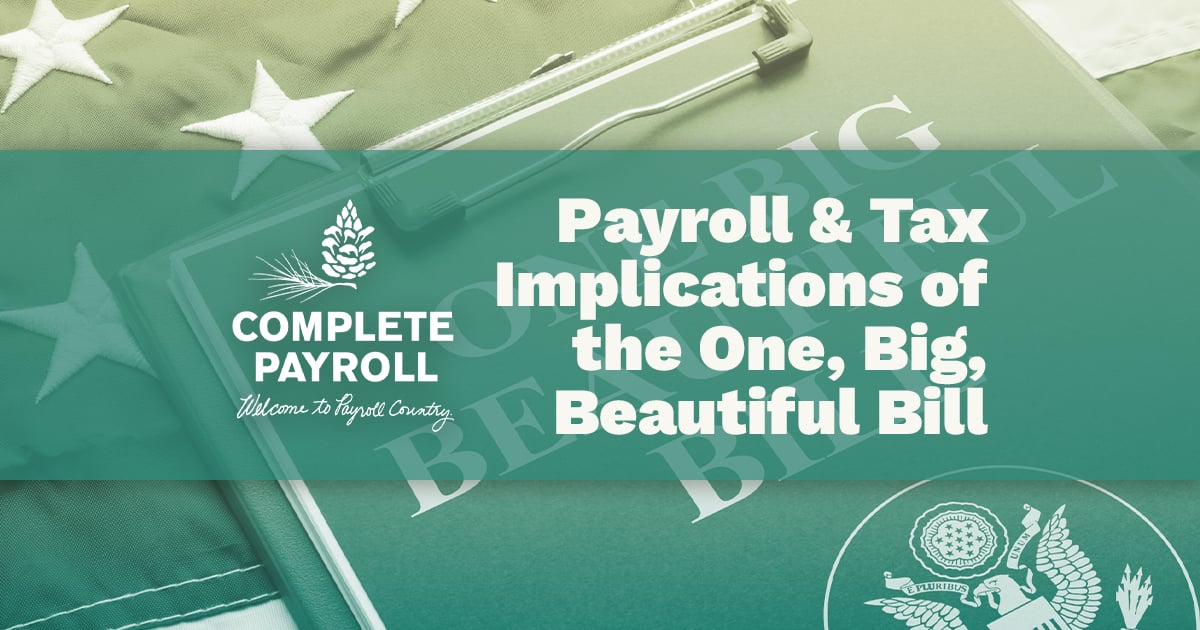Federal and State Exempt Minimum Salary - 2024 Requirements

Written by Complete Payroll

There is no change to the federal minimum salaries for exempt employees. As it stands, the requirement is that executive, administrative, and professional workers must earn a minimum of $684 per week ($35,568 annually). However, it is important to keep in mind two crucial things:
- These amounts can vary by state. Several states already have significantly higher minimum thresholds.
- The U.S. Department of Labor (DOL) is considering changes to increase minimum wages.
When updating payroll for 2024, employers need to check state-specific requirements and closely monitor the proposed federal increase.
Many States Have Higher 2024 Exempt Salary Threshold Requirements
California
Effective January 1, 2024, California employees must earn an annual salary of at least $1,280 weekly ($66,650 annually) to meet the salary exemption. Certain professions also have additional minimums in California.
Computer software employees must be paid an hourly wage of $55.58 per hour, a monthly salary of $9,646, or an annual salary of $115,763.55 to be exempt from overtime.
New York
Depending on where employees work, the exempt minimum salary for 2024 in New York can range from $1,124.20 weekly ($58,558.40 annually) to $1,200 weekly ($62,400 annually). New York lawmakers also passed legislation increasing this amount annually by slightly more than 3% in both 2025 and 2026.
Washington
In Washington state, the salary threshold exemption is $1,302.40/week ($67,724.80 a year) for 2024.
Colorado
The minimum salary required to qualify for the executive, administrative, or professional exemptions under Colorado state law increases to $1,057.69 per week ($54,999.98), effective January 1, 2024.
Under the state's exemption for highly technical computer employees, the employee may be paid by salary (at least $1,057.69 per week in 2024) or by the hour. The minimum hourly rate for 2024 for these highly technical computer employees hasn't been published yet.
Proposed Changes to 2024 Exempt Salary Threshold
The DOL opened a Notice of Proposed Rulemaking (NPRM) in September 2023, including increases to minimum compensation under the Fair Labor Standards Act (FLSA). Not only would it hike the exempt minimum salary in 2024 and beyond, but it will also trigger an automatic adjustment in the future.
The revised statute would set the FLSA-exempt salary for 2024 and establish wages based on the 35th percentile of the weekly earnings of full-time, salaried workers in the Census Region with the lowest average wages. Currently, that would set wages based on the South Region. If adopted, that would increase the exemption from $684 per week ($35,568) to $1,059 per week ($55,068) per year — a 54% increase.
Although the proposal is currently in subcommittee and not expected to move forward, employers must monitor it closely to ensure compliance.
Such an increase would require a significant adjustment to salary lines or reclassifying current exempt employees as non-exempt and subject to overtime rules. The Wage and Hour Division at DOL projects that this change would impact the exempt status of 3.6 million salaried workers.
Claiming Exempt Status: Beyond FSLA Exempt Salary 2024
Wages are just one component of determining whether an employee should be classified as exempt or non-exempt. Under the FSLA, several other criteria must be met depending on the position:
Executive Exemption
- Primary duty is managing the enterprise or a department/subdivision
- Customarily/regularly directs the work of 2+ other full-time employees
- Authority to hire/fire or recommendations given particular weight
Administrative Exemption
- Primary duty is office/non-manual work directly related to management or business operations.
- Exercise of discretion and independent judgment on matters of significance
Professional Exemption
- Primary duty is work requiring advanced knowledge in a field of science/learning.
- Advanced knowledge is customarily acquired through prolonged/specialized instruction.
Creative Professional Exemption
- Primary duty is work requiring invention, imagination, originality, or talent in a recognized creative field.
Computer Employee Exemption
- Primary duty is computer systems analysis, programming, engineering, or other highly skilled computer work.
Outside Sales Exemption
- Primary duty is making sales or obtaining orders/contracts for services/facilities
- Customarily and regularly engaged away from employer’s place of business
To qualify as exempt under the FSLA, employees must meet the salary thresholds and all of the requirements listed under each category.
Highly Compensated Employees
Employees who receive high total annual compensation of $107,432 or greater (including at least $684 per week salary) can also be classified as exempt if they customarily and regularly perform executive, administrative, or professional duties and meet at least one of the criteria listed.
What Should Employers Do?
Employers who fail to pay overtime or misclassify employees can face serious consequences. Employees can sue employers for unpaid overtime wages, liquidated damages, and attorney's fees under the FSLA.
Violations can also lead to investigations, fines, and penalties from the Department of Labor or State Labor Departments.
When the government raises the limits for who is eligible for overtime pay, employers have a few options. They can raise salaries so that employees are still exempt, or they can reclassify workers as non-exempt and limit their hours. Employers may also choose to lower hourly rates to offset the increased cost of overtime pay. Additionally, employers can count nondiscretionary bonuses up to 10% of the standard salary level when calculating wages.
















 Get Instant Blog Notifications
Get Instant Blog Notifications


